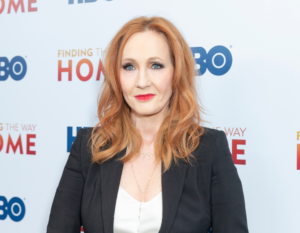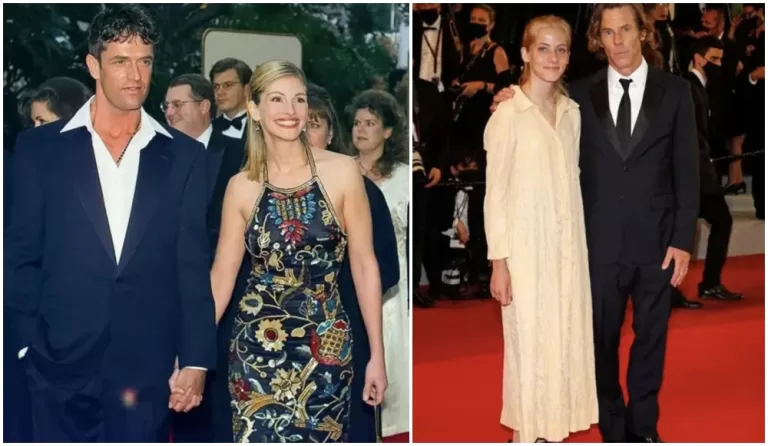J.K. Rowling will not forgive Daniel Radcliffe and Emma Watson after they became ‘celebrity mouthpieces’ for trans movements
In recent years, J.K. Rowling, renowned for her Harry Potter series, has found herself embroiled in controversy due to comments she made regarding gender identity and transgender issues. These statements have sparked widespread debate and criticism, particularly from LGBTQ+ advocates and allies.
Rowling’s stance on transgender rights became a subject of scrutiny after she posted tweets and wrote blog posts expressing concerns about the implications of gender identity legislation. She argued for the importance of safeguarding sex-based rights, particularly for women, raising questions about the definition of womanhood and the inclusion of transgender women in female spaces.
Her comments led to accusations of transphobia and drew sharp rebukes from many, including Harry Potter cast members and LGBTQ+ advocacy groups. The controversy intensified when Rowling released a novel under the pseudonym Robert Galbraith, featuring a cisgender male detective who cross-dresses as a woman to solve a case, further fueling accusations of insensitivity and reinforcing harmful stereotypes.
Despite the backlash, Rowling has remained steadfast in her beliefs, asserting her right to express opinions and engage in discourse on complex issues. However, her remarks have strained her relationship with some fans and tarnished her reputation in certain circles, with calls for boycotts and criticism of her work.
Amid the controversy, Rowling has continued to defend her views while also advocating for free speech and the importance of respectful dialogue. Nevertheless, the fallout from her comments underscores the challenges of navigating sensitive topics in an increasingly polarized and socially conscious world.
While there have been occasional reports of tensions between J.K. Rowling and some of the Harry Potter cast members, particularly Daniel Radcliffe and Emma Watson, over differing views on social and political issues, the specifics of their relationship remain largely speculative and subject to interpretation.
Rowling’s controversial statements on gender identity and transgender rights have sparked criticism and led to public disagreements with Radcliffe and Watson, both of whom have been vocal supporters of LGBTQ+ rights and have expressed views contrary to Rowling’s positions on these issues.
Despite any potential disagreements, it’s worth noting that Radcliffe and Watson have also expressed gratitude and appreciation for Rowling’s role in their careers and the impact of the Harry Potter series on their lives. They have acknowledged the positive influence of the books and films while also advocating for inclusivity and social justice.
Ultimately, the complexities of their relationship with Rowling reflect the broader challenges of navigating personal beliefs and professional connections in the public eye, particularly when it comes to contentious issues that touch on fundamental values and principles.

J.K. Rowling’s recent comments on social media regarding gender identity and transgender rights have reignited controversy and drawn criticism from many quarters, including some of the Harry Potter actors, particularly Daniel Radcliffe and Emma Watson.
Rowling’s statements were prompted by the publication of the Cass Review, conducted by Dr. Hilary Cass, which examined gender identity services for minors in the UK. The review highlighted concerns about the lack of high-quality research on the effects of puberty blockers on children.
In response, Rowling expressed anger and frustration over what she perceived as “severe medical malpractice” and criticized those who had supported gender-affirming approaches for minors without sufficient evidence. While Rowling did not name specific celebrities in her posts, her remarks were interpreted by some as directed towards Radcliffe and Watson, who have previously voiced support for transgender rights and inclusivity.
Rowling’s exchange with a follower on social media further fueled speculation about her views on the Harry Potter stars’ positions, with her indicating that she did not consider a public apology from them to be sufficient.
This controversy echoes previous incidents in 2020 when Rowling faced backlash for her comments on transgender issues, particularly regarding language around menstruation and women’s rights. Radcliffe and Watson, among others, publicly expressed their support for transgender rights and challenged Rowling’s stance at that time.
The ongoing tensions highlight the complexities of navigating personal beliefs, social activism, and public discourse, especially in the context of high-profile figures like Rowling and the Harry Potter cast members. The situation underscores the importance of dialogue, empathy, and understanding in addressing sensitive and divisive issues in society.

In response to J.K. Rowling’s tweet and subsequent comments on sex and gender identity, Daniel Radcliffe penned an essay for The Trevor Project, expressing solidarity with the transgender community and apologizing for any harm caused by Rowling’s remarks.
Radcliffe’s essay emphasized the importance of affirming and supporting transgender individuals, highlighting the challenges they face and advocating for their rights and dignity. He acknowledged the pain and frustration caused by Rowling’s statements and reaffirmed his commitment to standing with transgender people.
The essay underscored the significance of fostering understanding, empathy, and acceptance towards all individuals, regardless of gender identity or expression. Radcliffe’s public stance served as a powerful statement of solidarity and support for the transgender community during a time of heightened scrutiny and debate over issues of identity and inclusion.

It’s evident that there’s tension between J.K. Rowling and some of the actors from the Harry Potter franchise, particularly Daniel Radcliffe and Emma Watson, due to their differing views on transgender rights and identity. Rowling’s comments on gender identity have sparked controversy and criticism, prompting responses from Radcliffe and Watson expressing support for the transgender community.
While there may be disagreements and differing perspectives among them, it’s important to recognize that individuals can hold differing opinions while still respecting each other’s rights and dignity. Rowling’s comments have ignited debates and discussions on important issues surrounding gender identity and transgender rights, highlighting the need for empathy, understanding, and inclusion in our society.
Ultimately, it’s essential for constructive dialogue to take place, fostering mutual respect and understanding, even in the face of disagreements. As the conversation continues, it’s crucial to prioritize empathy and compassion for all individuals, regardless of their views or backgrounds.






